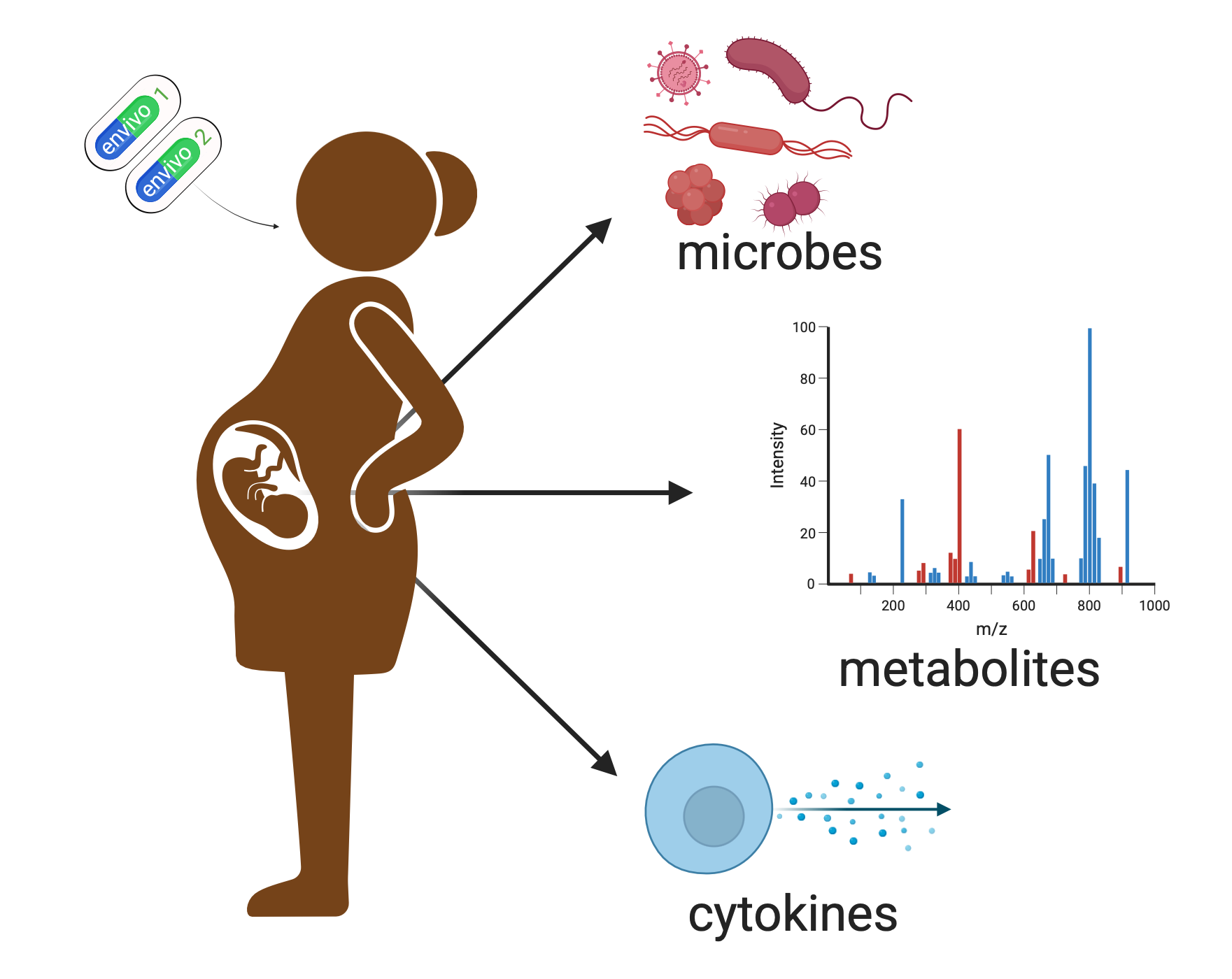Evaluating immune function within the small intestine in pregnant women at high risk of environmental enteropathy

This research focuses on evaluating immune function within the small intestine of pregnant women at high risk of environmental enteric dysfunction (EED) in Sub-Saharan Africa (Burkina Faso, Senegal, Zambia) and South Asia (Bangladesh, Pakistan).
Using the innovative CapScan device, we are passively sampling the small intestinal environment to characterize local immune profiles, along with microbiota and metabolites. For immunoprofiling, we measure a comprehensive panel of >100 cytokines, chemokines, growth factors, and inflammatory markers (including MPO and LCN2) using Luminex technology. By comparing these intestinal immune signatures to standard fecal and plasma biomarkers commonly used to assess EED, we aim to identify markers that best correlate with maternal gestational weight gain velocity and infant birth outcomes. And then to identify which microbes are most closely correlated with inflammatory phenotypes so that we might better understand mechanisms underlying EED. Our short-term goal is to improve understanding of intestinal immune function and microbiome changes in individuals during pregnancy and identify novel biomarkers predictive of maternal and child health outcomes. In the long term, we aim to develop interventions to improve maternal and child nutrition that are tailored to directly combat the drivers of EED.